Pitch Pine Tree
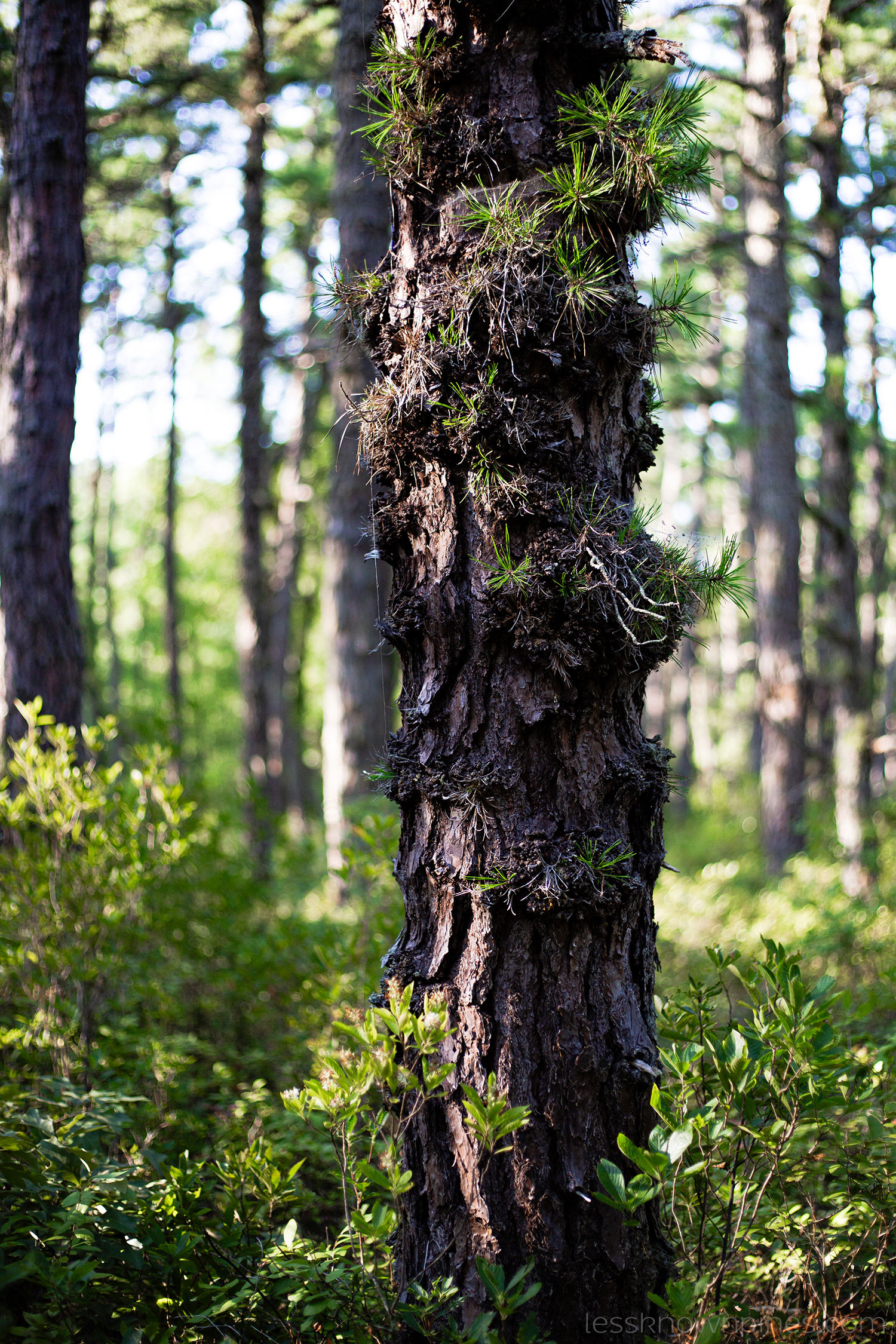
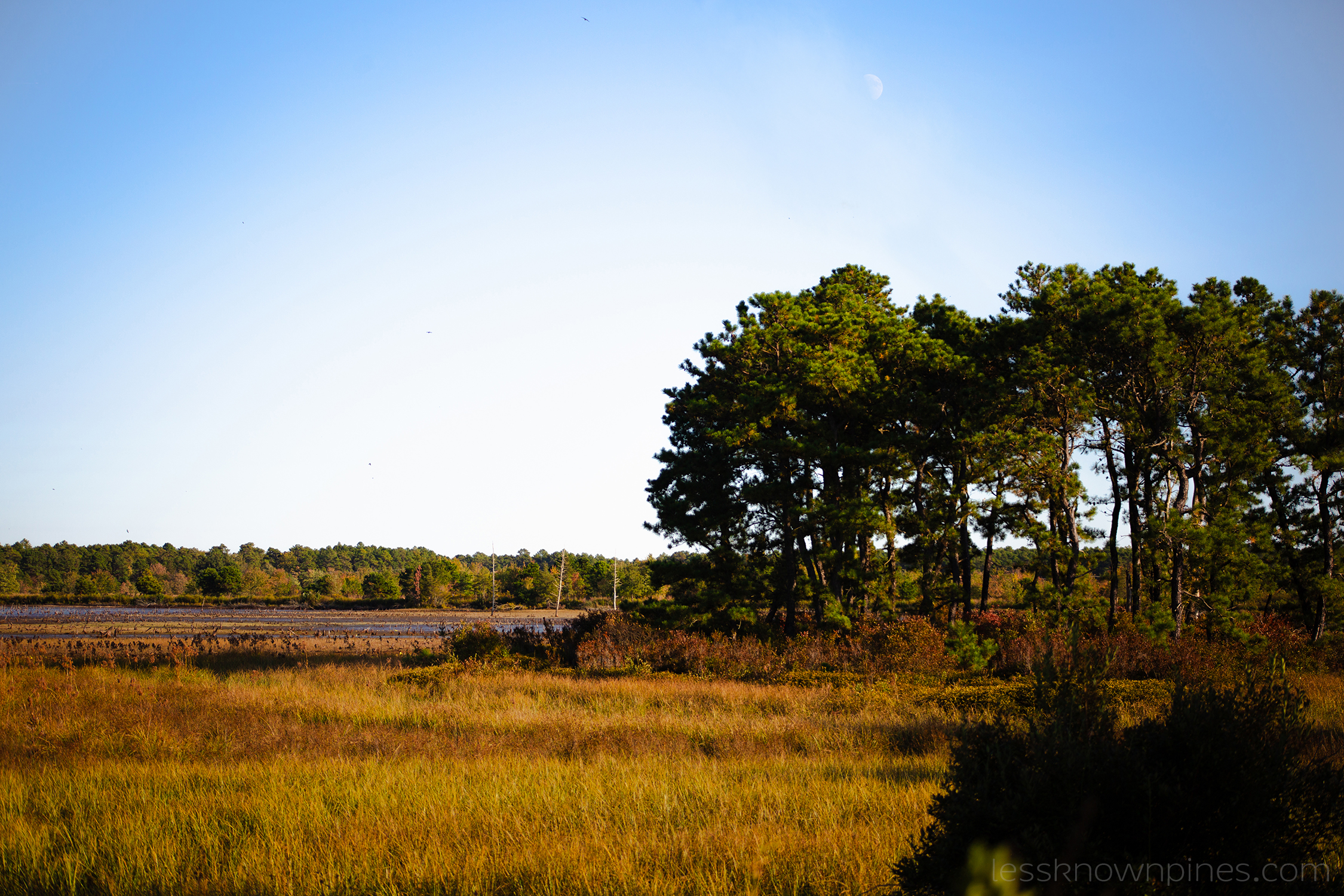
The most common species in the New Jersey pine barrens. The pitch pine tree. This tree has scaly bark unlike cedar that has smoother bark. It typically grows tall and narrow, with the majority of the pine needles and branches being toward the top half of the tree. These trees like sandy, acidic soil and can thrive in the low nutrtient content within the sand-based soil.
Pitch pine trees are also very fire resilient as the pine barrens is very susceptible to wildfire. Not only can these trees help slow down the burning process, but they can even regrow limbs from the same tree after a forest fire.
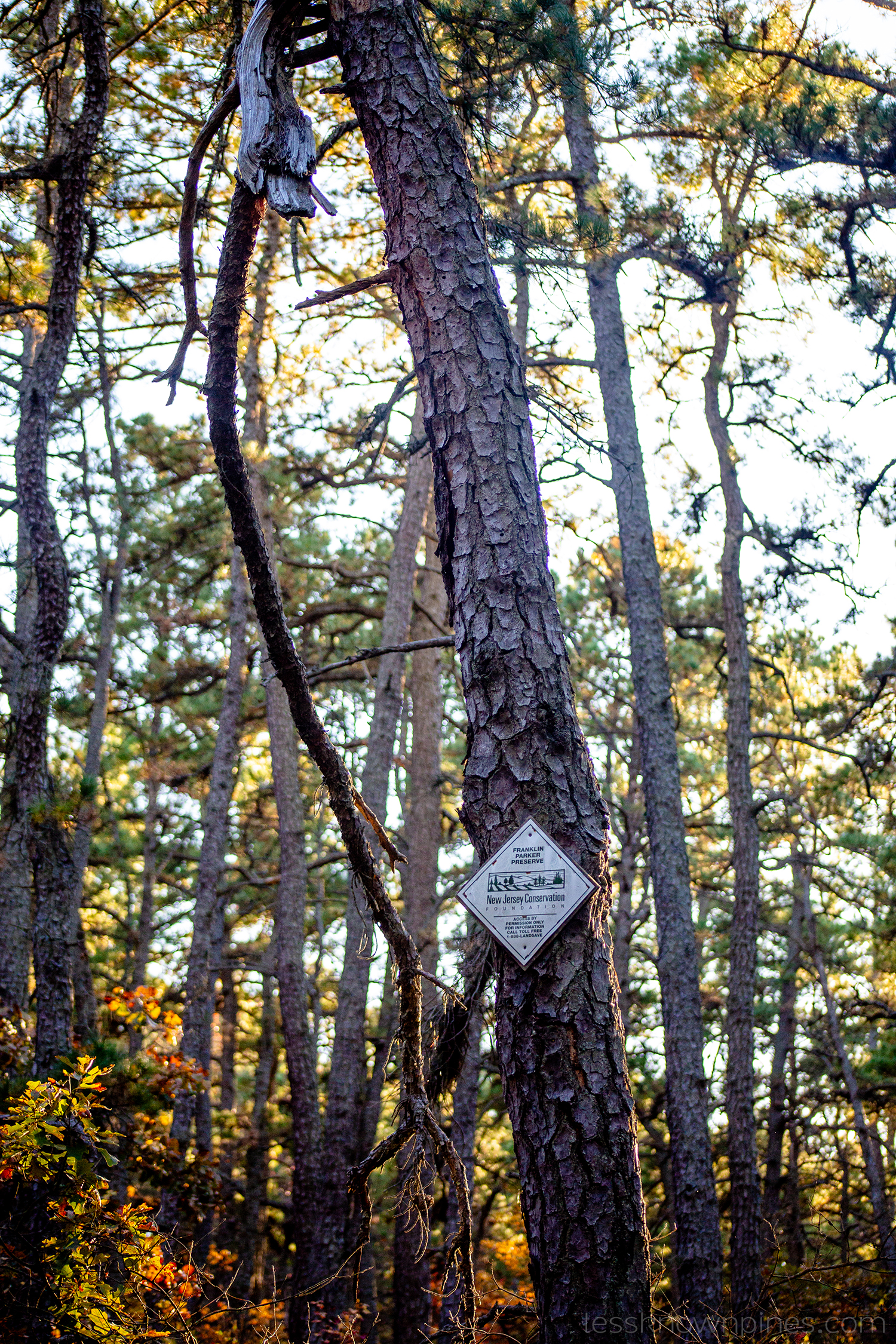
Even though there are plenty of other species here, pitch pine makes up the majority of the vegetation. From an aerial view or capture, and from a ground view, what is most noticable is the pitch pine. This is why it is called the 'pine barrens'. Roughly half of a million acres of the pine barrens is covered in these trees.
The sweet smell
When pitch pine burns from wildfire or domestic burning (e.g., bonfires, wood burner, fireplace), you'll notice a distinct sweet smell. This specific aroma can offer signs of a wildfire or just a campfire or boiler in use.

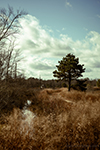

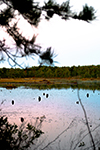

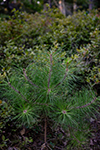
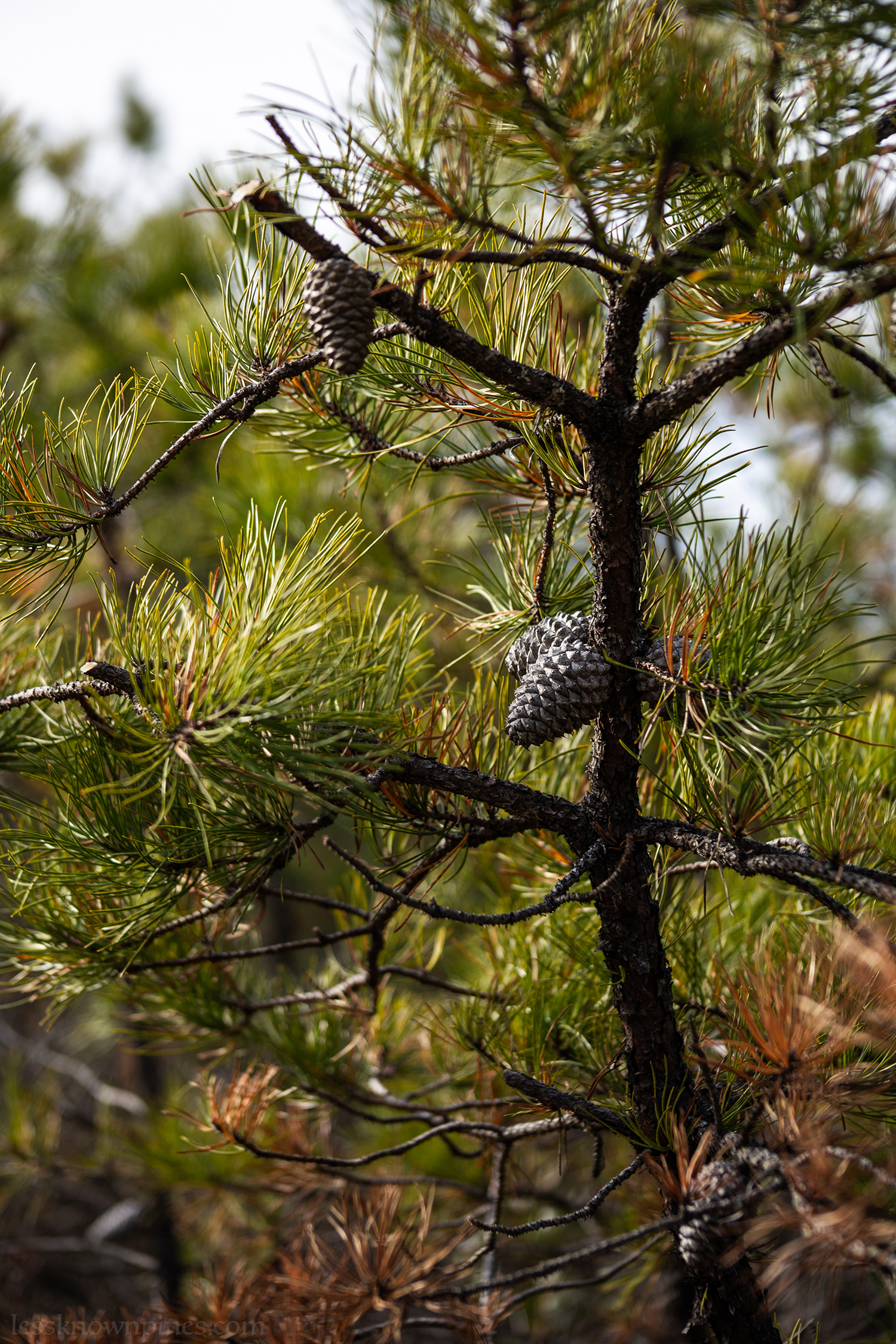 Pitch pine cones on a dwarf pine tree
Pitch pine cones on a dwarf pine tree